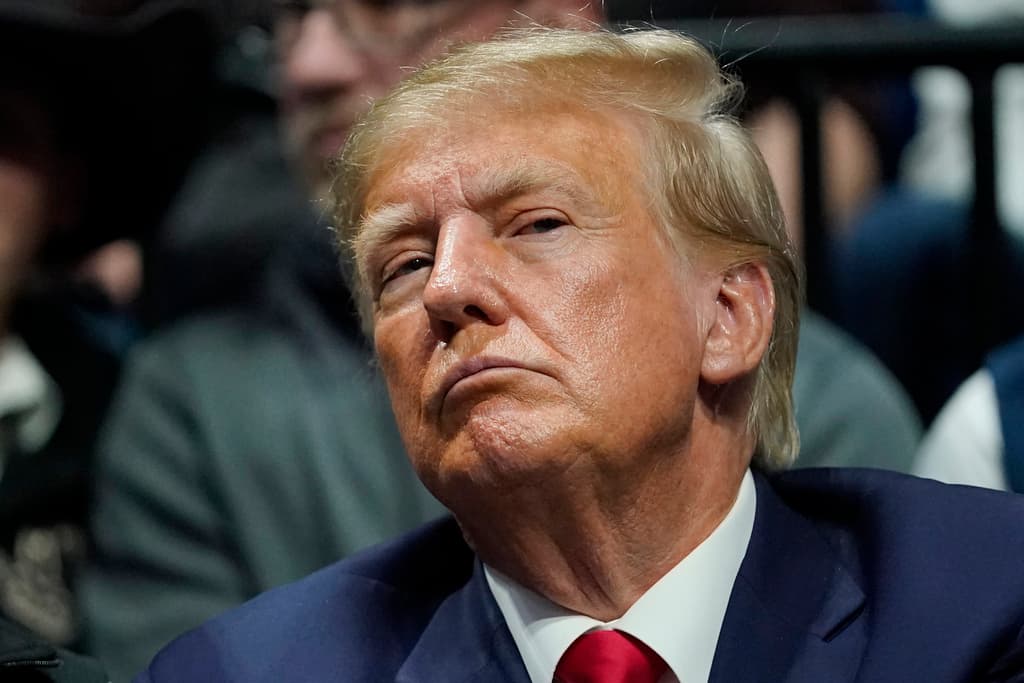Will Trump’s Road Back to the White House Run Through Oregon’s Hubbard Rural Fire Protection District?
The prospect raises echoes of the ancient Greek statesman, Epaminondas, who after a fall from power shocked his foes by taking a post as public scavenger, saying if the office would not bring honor to him, he would bring honor to it.

President Trump is a winner again at last, earning one of five seats on the Hubbard Rural Fire Protection District in Oregon. Whether the former president will choose to serve isn’t known, yet the situation provides precedents that might encourage him to claim the prize.
Just as the Electoral College delivered Mr. Trump’s victory in 2016, he didn’t win the popular vote in the Oregon fire district race on May 16, but tied four other write-in candidates with two votes apiece. The winner was settled with a roll of 12-sided die, elevating the former casino mogul to Hubbard fire district board director position no. 3.
According to the Salem Statesman Journal, “because he doesn’t live or own property in the district” of some 5,000 citizens, the Hubbard fire chief, Michael Kahrmann, said, “the next step would be to determine if either of the other two candidates who won the dice roll are interested.”
Not so fast. Mr. Trump is always unpredictable, and a small local office could prove better than none. This was the outlook of President Tyler, the Democratic vice president who entered the White House in 1841 upon the death of a Whig, President William Henry Harrison.
After losing the Democratic nomination in 1844, Tyler — the first president subjected to an impeachment effort — retired to the Clark County, Virginia, home he’d named Sherwood Forest, casting himself as a contemporary version of another political outlaw, Robin Hood.
One of Tyler’s favorite historical figures was an ancient Greek statesman, Epaminondas, who saved Thebes but whose enemies — when his popularity ebbed — elected him public scavenger. Epaminondas shocked his foes by taking the job, saying if the office would not bring honor to him, he would bring honor to it.
So, when Tyler’s Whig neighbors appointed him road overseer — the equivalent of Department of Public Works chief — he ran Epaminondas’s playbook. According to Oliver Chitwood’s “John Tyler: Champion of the Old South,” Tyler accepted the position, which included “authority to summon for repair work all the men who dwelt on his section of the road whenever he deemed it necessary.”
Tyler “summoned his neighbors so frequently to this work at harvest time and on other unseasonable occasions,” Chitwood wrote, “that soon they repented of having chosen so active an overseer.” When they asked Tyler to leave, he responded that “offices were hard to obtain in these times, and having no assurance that he would ever get another,” he couldn’t resign.
The idea of making similar mischief might not be enough to persuade Mr. Trump to move to the district, but he could purchase property and become eligible for the directorship, an act that would tweak foes who seek to ban him from future public office.
Tyler died in 1862 while awaiting a seat in another office, the Confederate house of representatives, where he would have followed the path of President John Quincy Adams, who tormented his opponents by serving in America’s lower legislative chamber.
In 1828, Adams became the first president to lose re-election, having gotten the job when the decision went to the House after no candidates won the required number of electoral votes. “Old Man Eloquent” spent the next 17 years harrying supporters of slavery, refusing to be silent until collapsing from a fatal stroke on the House floor.
President Andrew Johnson, the first president to be impeached — and, like Tyler, having ascended to the presidency after the death of a president from the opposition — also returned to Congress seeking payback, serving 10 years as senator of Tennessee.
Mr. Trump is often compared to Johnson, if never to the titanic Adams or little-remembered Tyler — to say nothing of Epaminondas. However, all three ex-presidents found a measure of satisfaction in lower posts, using them to settle scores and advance their political goals, keeping their hands in the world of politics.
It’s not likely that Mr. Trump will answer Oregon’s call to service, but the examples of predecessors who left office against their will could lead him to consider it.
The job might not reverse his fortunes in a state he lost by 16 points in 2020, but for a platform to sling arrows at the establishment running our national Sherwood Forest, don’t be surprised if he rolls the dice.

